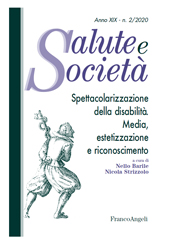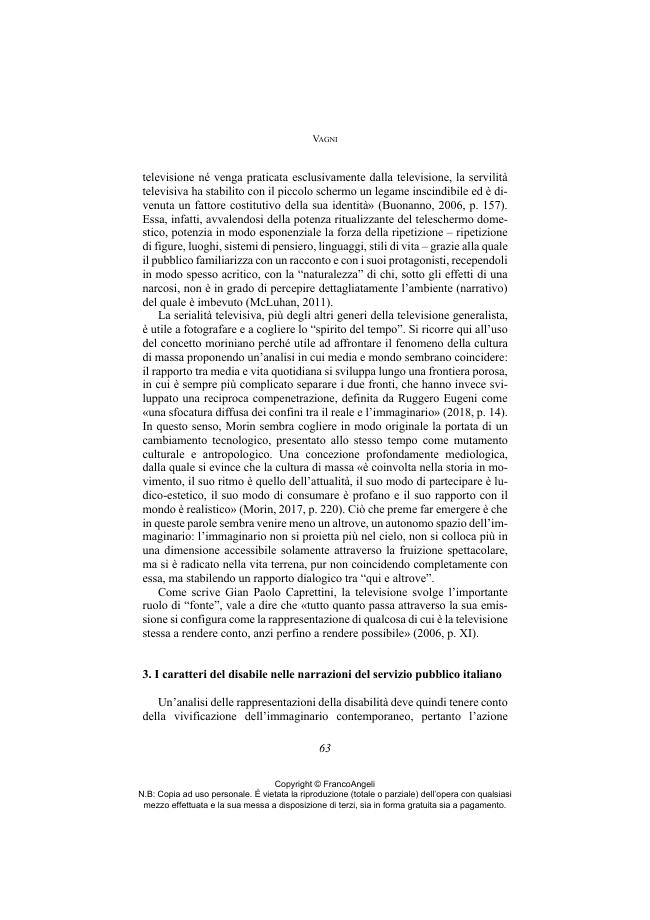Servizio pubblico televisivo e politiche culturali della disabilità : modelli di un immaginario consolatorio
56-70 p.
This article analyses the editorial strategies of the italian public service broadcasting in the field of disability. Focusing on the latest generation of television seriality, broadcast by public television, it intends to show how the mechanisms of functioning typical of the american cultural industry, revealed by the critical theories of the twentieth century, have been taken over by the Italian public television. The RAI through specific media products has implement cultural policies aimed at conveying an imaginary of disability "consolatory" and based on the"good heart", favoring models that give back to television audiences an image of disability falsified and spent inconsistent with the experience in situ.
The article describe the RAI cultural policy that promotes a conciliatory image of disability with the intention of making it familiar and acceptable, but the result is the neutralization of the complexity of a human condition of extreme suffering, caused precisely by the relational difficulties due to the image of disability that has stratified in the social environment. [Publisher's text].
Forma parte de
Salute e società : XIX, 2, 2020-
Artículos del mismo número (disponibles individualmente)
-
Información
Código DOI: 10.3280/SES2020-002005
ISSN: 1972-4845
KEYWORDS
- Disabilità, immaginario, industria culturale, teoria critica, politiche culturali,servizio pubblico televisivo
- Disability, imaginary, cultural industry, critical theory, cultural policies, publicservice broadcasting



